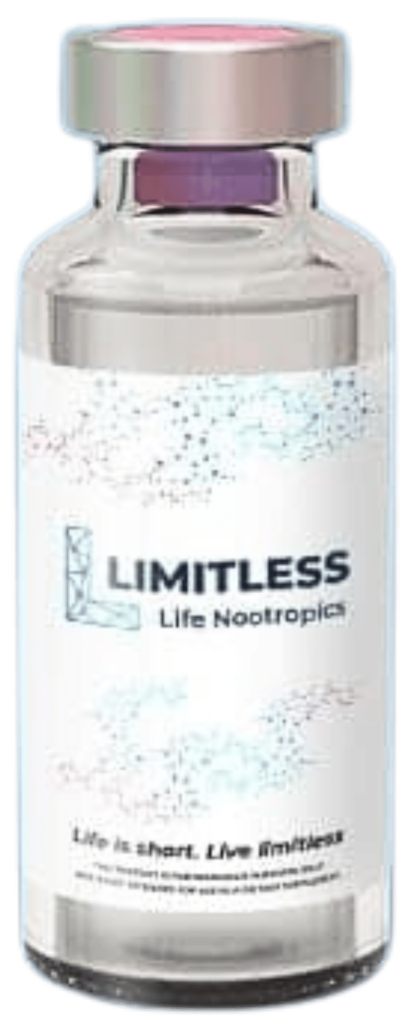As you enter your 40s, you may find yourself dealing with some changes in your body.
Your metabolism begins to slow down.
Your hair might be falling out or you might be experiencing irregular menstruation, in addition to muscle aches and forgetfulness, among other things.
In this case, you might be experiencing menopause – an inevitable aspect of aging for women.
Table of Contents
ToggleWhat are the Symptoms of Menopause?
Menopause is a natural biological process that typically occurs between the ages of 45 and 58.
During this time, the ovaries produce fewer sex hormones, resulting in the end of your monthly periods and fertility.
In fact, about two-thirds of menopausal women experience symptoms such as:
- Hot flashes and night sweats are characterized by sudden heat in the face, neck, and chest, accompanied by flushing, sweating, and discomfort that can last several minutes.
- Changes in menstrual cycles, eventually lead to the cessation of menstruation.
- Vaginal dryness, pain during sex, and incontinence.
- Difficulty sleeping or insomnia.
- Mood changes, depression, and/or anxiety.
Although these are natural parts of aging, it’s important to know that you don’t have to suffer alone.
Peptides and Menopause
There are both hormonal and non-hormonal treatments that can help with menopausal relief.
This includes using peptide therapy for menopause.
Peptides play a vital role in many biological functions, including hormone production, tissue repair, and immune response.
By binding to specific receptors in the body involved in hormone production, peptides can modulate hormone levels and restore balance to the endocrine system.
They help regulate hormone levels and alleviate menopausal symptoms by stimulating the production of human growth hormone.
Why is Human Growth Hormone (HGH) Important for Menopause?

Human growth hormone (HGH) is believed to slow down the aging process.
It is crucial for stimulating growth, cellular reproduction, and regeneration in humans.
The pituitary gland, located at the base of the brain, produces HGH.
This gland is often referred to as the “master gland” because it releases many hormones that control the functions of other glands in the body.
However, as we age, the production of HGH decreases.
In women, this decline becomes noticeable around middle age, coinciding with perimenopause and menopause.
During this time, estrogen, progesterone, and HGH levels are all in decline.
This can lead to various symptoms, including the loss of lean body mass, increased abdominal fat, sleep disturbances, decreased libido, sagging skin, and low energy levels.
Low HGH levels are also associated with decreased bone density, contributing to the higher incidence of osteoporosis in women.
Therefore, it’s important to maintain healthy levels of HGH to preserve your youthfulness and overall vitality.
It can help you manage hormone imbalances during menopause, including reduced body fat, enhanced mental and physical performance, increased muscle mass and strength, better bone density, improved sleep quality, and improved immune function.
Below are the four best peptides women can use for menopause relief.
4 Best Peptides for Menopause Relief

Menopause can feel like you’re on a wild roller coaster ride.
But don’t worry – peptides are here to help you manage your brain fog, mood swings, and hot flashes.
CJC-1295
CJC-1295 is a synthetic analog of the growth hormone-releasing hormone (GHRH).
It was developed by ConjuChem Biotechnologies, a Canadian pharmaceutical company, and consists of amino acids #1-29 of GHRH.
Originally, CJC-1295 was used for people with muscle loss, growth problems, and burns.
Today, this peptide is used by many aging women, especially those dealing with menopause.
You see, CJC-1295 can boost human growth hormone by up to ten times its normal capacity.
It can also boost serum growth hormone levels by 200-1000%.
After a single injection of CJC-1295, there were dose-dependent increases in mean plasma GH concentrations by 2- to 10-fold for 6 d or more and in mean plasma IGF-I concentrations by 1.5- to 3-fold for 9-11 d.
The estimated half-life of CJC-1295 was 5.8-8.1 d. After multiple CJC-1295 doses, mean IGF-I levels remained above baseline for up to 28 d. No serious adverse reactions were reported.
With this, many women report increased energy, improved mood, and better muscle tone.
One of the other benefits you can get by taking CJC-1295 is weight loss.
Most women find it hard to lose weight during menopause.
Some women also tend to store more fat around the waist from their thighs and hips, which is caused by low levels of estrogen in the body.
In fact, their belly fat accounts for 15 to 20% of total body fat, putting them at risk of type 2 diabetes, metabolic syndrome, and heart disease.
Fortunately, CJC-1295 can help you lose that stubborn belly fat by making the pituitary gland release more growth hormone.
The peptide effectively increases GH and IGF-1 levels, resulting in a significant reduction in body fat percentage and body mass index (BMI).
After a single injection of CJC-1295, there were dose-dependent increases in mean plasma GH concentrations by 2- to 10-fold for 6 d or more and in mean plasma IGF-I concentrations by 1.5- to 3-fold for 9–11 d.
The estimated half-life of CJC-1295 was 5.8–8.1 d. After multiple CJC-1295 doses, mean IGF-I levels remained above baseline for up to 28 d. No serious adverse reactions were reported.
For the best results, take CJC-1295 along with eating an insulin controlled diet and performing resistance and cardio vascular exercise.
You may also have trouble sleeping during menopause.
According to the Sleep Foundation, 29% to 47% of women suffer from sleep disorders during perimenopause and 35% to 60% during postmenopause.
These women experience insomnia, hot flashes, and sleep-disordered breathing.
Fortunately, CJC-1295 helps stimulate the release of growth hormone (GH) during deep sleep stages.
This helps in tissue repair, restorative sleep, and overall sleep quality, giving you a more refreshing and restful night’s sleep.
In a study published in the Journal of Neuropsychobiology, patients with insomnia who were given delta sleep-inducing peptides such as CJC-1295 recorded higher sleep efficiency and shorter sleep latency.
In other words, they fell asleep faster than before.
The influence of delta sleep-inducing peptide (DSIP) on sleep was studied in 16 chronic insomniac patients according to a double-blind matched-pairs parallel-groups design.
Subjects slept for 5 consecutive nights in the laboratory. Night 1 was used for adaptation, night 2 for baseline measurements.
In the afternoon before the 3rd, 4th, and 5th night, half of the patients received intravenously 25 nmol/kg body weight DSIP, and half of the patients a glucose solution (placebo).
The results for objective sleep quality indicated higher sleep efficiency and shorter sleep latency with DSIP as compared to placebo.
One measure of subjectively estimated tiredness decreased within the DSIP group.
As none of the other measures, including subjective sleep quality, showed any change, it was concluded that short-term treatment of chronic insomnia with DSIP is not likely to be of major therapeutic benefit.
Not only that, but women’s verbal memory performance is also affected during menopause.
It’s no wonder why they experience more brain fog and forgetfulness during the menopausal transition.
One of the reasons this happens is because menopause affects how brain cells are created, connect, and die.
CJC-1295 helps in the synaptic plasticity formation of new neurons and neuronal survival, both of which are critical in maintaining healthy brain function, especially for memory, learning, and mental clarity in women.
In fact, supplementing CJC-1295 in adults with mild cognitive impairment boosts Gamma-Aminobutyric acid (GABA) and N-acetylaspartylglutamate (NAAG) levels – two brain chemicals that are important for brain health and function.
After 20 weeks of GHRH administration, GABA levels were increased in all brain regions (P < .04), NAAG levels were increased (P = .03) in the dorsolateral frontal cortex, and MI levels were decreased in the posterior cingulate (P = .002).
These effects were similar in adults with MCI and older adults with normal cognitive function.
CJC-1295 and Ipamorelin
Want to get five times the benefits of CJC-1295?
Then take it with ipamorelin.
Studies have shown that taking them together gives your body what’s called a GHRH (amplifier) and a GHRP (inducer).
It boosts growth hormone by increasing the strength of the pulse of growth hormone release and the number of somatotrophs (or cells that release growth hormone).
For those who are looking to boost a steady growth hormone release, CJC-1295 is one of the best peptides for anti-aging benefits for menopausal women.
Tesamorelin
Tesamorelin is a synthetic peptide that consists of a 44-amino-acid and falls under the category of growth hormone-releasing factors.
It stimulates the pituitary gland to produce human growth hormone (HGH), which plays an important role in metabolism regulation, cell regeneration, bone density maintenance, and muscle mass development.
It also boosts insulin-like growth factor (IGF-1) levels, which can help women undergoing menopause to lose weight and increase lean muscle mass.
In 2010, the FDA approved tesamerolin as a treatment for lipodystrophy in HIV patients.
This medication is used to reduce excess fat in the stomach area (abdomen) in people with HIV infection who have changes in the way their body fat is distributed.
Some HIV drugs may cause this side effect (increased fat in the upper back and stomach areas, decreased fat in the arms and legs).
Tesamorelin can also reduce visceral adipose tissue (VAT) – a specific type of body fat being accumulated, specifically visceral adipose tissue.
The associated gain in abdominal fat is largely attributed to visceral adipose tissue (VAT). This type of fat is deep in the abdomen and surrounds the organs, hence ‘visceral.’
This is different from subcutaneous fat, which can be thought of as the ‘jiggly’ fat underneath the skin. VAT is associated with numerous disease states such as insulin resistance (leading to type 2 diabetes), hypertriglyceridemia (high trigylcerides), metabolic syndrome, and heart disease.
In a 2010 study published in the Journal of Acquired Immune Deficiency Syndromes, it was found that tesamorelin can help reduce visceral fat by up to 18% and improve body image distress after 52 weeks of tesamorelin treatment in HIV-infected patients with abdominal fat.
At wk 26, VAT decreased significantly in tesamorelin-treated patients (-24 +/- 41 vs. 2 +/- 35 cm(2), tesamorelin vs. placebo, P < 0.001; treatment effect, -15.4%).
Treatment with tesamorelin resulted in significant decreases in triglycerides (-37 +/- 139 vs. 6 +/- 112 mg/dl, P < 0.001; treatment effect, -12.3%) and cholesterol to high-density lipoprotein ratio (-0.18 +/- 1.00 vs. 0.18 +/- 0.94, P < 0.001; treatment effect, -7.2%) vs. placebo.
Tesamorelin improved body image [belly appearance distress (P = 0.002)], patient rating of belly profile (P = 0.003), and physician rating of belly profile (P < 0.001).
Mean IGF-I increased 108 +/- 112 vs.-7 +/- 64 ng/ml (P < 0.001 vs. placebo). At wk 52, decreases in VAT [-35 +/- 50 cm(2) (-17.5 +/- 23.3%)], waist circumference (-3.4 +/- 6.0 cm), triglycerides (-48 +/- 182 mg/dl), cholesterol (-8 +/- 38 mg/dl), and non-high-density lipoprotein (-7 +/- 38 mg/dl) were maintained (all P < 0.001 vs. original baseline) in the T-T group.
Lastly, in a study published in The New England Journal of Medicine, HIV-infected patients with abdominal fat accumulation who took tesamorelin for 26 weeks reduced visceral fat by 15.2% compared to the placebo.
412 patients with HIV (86% of whom were men) who had an accumulation of abdominal fat received a daily subcutaneous injection of either 2 mg of tesamorelin or a placebo for 26 weeks.
The measure of visceral adipose tissue decreased by 15.2% in the tesamorelin group and increased by 5.0% in the placebo group; the levels of triglycerides decreased by 50 mg per deciliter and increased by 9 mg per deciliter, respectively, and the ratio of total cholesterol to HDL cholesterol decreased by 0.31 and increased by 0.21, respectively (P<0.001 for all comparisons).
Levels of total cholesterol and HDL cholesterol also improved significantly in the tesamorelin group.
Levels of IGF-I increased by 81.0% in the tesamorelin group and decreased by 5.0% in the placebo group (P<0.001).
Tesamorelin can also help improve cognitive function.
Around two-thirds of women have trouble thinking during menopause.
They often have brain fog and find it hard to make decisions, concentrate, learn new things, recall specific events and details, or think clearly.
In this case, know that you are not losing your mind. These changes are only temporary and don’t affect your cognitive abilities.
It’s just that your mind is undergoing a transition and needs time to adjust.
This is because, during menopause, your estrogen levels decline.
High estrogen levels give your brain more energy.
However, as estrogen plummets due to menopause, your brain activity also slows down.
This leads to the faster aging of neurons and the production of amyloid plaques, which are linked to Alzheimer’s disease.
Based on one study, brain scans showed that women in their 40s and early 50s may start to see an increase in amyloid plaques, which are usually rare in men of the same age.
This suggests that the process leading to Alzheimer’s might start during the menopause transition.
Studies show that the “cognitive enhancer” tesamorelin can help people with age-related memory problems, including those in the menopausal stage.
Another study by Spanish scientists discovered that daily use of tesamorelin for 20 weeks helps with executive function, verbal memory, and visual memory in adults with mild cognitive impairment and healthy older adults.
Growth hormone-releasing hormone (GHRH), growth hormone, and insulin like growth factor 1 have potent effects on brain function. Their levels decrease with advancing age, and they likely play a role in the pathogenesis of Alzheimer’s disease.
The intent-to-treat analysis indicated a favorable effect of GHRH on cognition (P=.03), which was comparable in adults with MCI and healthy older adults. The completer analysis showed a similar pattern, with a more robust GHRH effect (P=.002). Subsequent analyses indicated a positive GHRH effect on executive function (P=.005) and a trend showing a similar treatment-related benefit in verbal memory (P=.08).
This goes to show that tesmorelin is a great peptide option for menopausal relief.
Epitalon
Epitalon is a synthetic tetrapeptide that comes from the naturally-produced peptide known as epithalamin.
It was first discovered in the 1980s by Vladimir Anisimov, a Russian scientist who specializes in the field of gerontology, when it was extracted from calves.
However, it was Dr. Vladimir Khavinson, a scientist at St. Petersburg Institute of Bioregulation and Gerontology, who made epitalon popular in his research on peptide bioregulators.
The theory proposed by Professor Khavinson is based on the underlying assumption that changes in gene expression result in decreased protein synthesis, eventually leading to aging and the development of diseases.
Stimulation of peptide production through use of “peptide bioregulators” is designed to affect a specific organ, system, or condition in the body, using a highly specific short-chain peptide to act as a shortcut to initiate protein synthesis and increase organ function.
… Peptide bioregulators – first discovered and researched in the 1980s by Professor Khavinson – are based on the premise that each body organ uses a very specific peptide that acts like a gene switch, triggering or “regulating” a biological reserve.
When isolated from individual organs and glands, these specific peptides stimulate protein synthesis of the tissues they are derived from.
Epithalon’s (epitalon) role is to increase the natural production of telomeres.
One way that etalon helps is by protecting the protective caps of telomeres.
Telomeres are like the protective caps at the ends of shoelaces that keep them from fraying.
In this case, the “shoelace” is the chromosome, which is a long strand of DNA wrapped up tightly.
If the telomeres weren’t there, the ends of the chromosomes could get damaged or stick to other chromosomes, causing problems for the cell.
Therefore, telomeres are crucial for protecting the integrity of the genetic material in our cells.
However, the length of telomeres shortens as we age.
Progressive shortening of telomeres is associated with aging and can impact overall health and lifespan.
The good news is that we can preserve and elongate telomeres.
Thanks to epitalon, we can increase the body’s natural production of telomerase, an enzyme that helps cells produce more telomeres to protect DNA from becoming worn out during DNA replication.
This replication is crucial for cell division during growth or the repair of damaged tissue in the body.
A study published by the Neuro Endocrinology Letters showed that taking epitalon can boost melatonin production, enhance antioxidant defenses, improve immunological parameters, and restore reproductive function in rats.
Epithalamin increases melatonin production by the pineal gland of rats, improves immunological parameters in rats and mice, produces anticarcinogenic effects in different experimental models, stimulates antioxidant defenses, and restores the reproductive function in old rats.
These effects are combined with the ability of epithalamin to increase the lifespan in rats, mice, and fruit flies. Many of these effects are reproduced in clinical trials, which have demonstrated the geroprotector activity of epithalamin in humans.
Similarly, epitalon showed improved biomarkers of aging and life span in female mice according to a study published in Biogerontology.
From the age of 3 months until their natural deaths, female outbred Swiss-derived SHR mice were subcutaneously injected on 5 consecutive days every month with 0.1 ml of normal saline (control) or with 1.0 microg/mouse (approximately 30-40 microg/kg) of tetrapeptide Epitalon (Ala-Glu-Asp-Gly) dissolved in 0.1 ml saline.
There were 54 mice in each group.
The results of this study show that treatment with Epitalon did not influence food consumption, body weight, or mean life span of mice. However, it slowed down the age-related switching-off of estrous function and decreased the frequency of chromosome aberrations in bone marrow cells (by 17.1%, P<0.05).
It also increased by 13.3% the life span of the last 10% of the survivors (P<0.01) and by 12.3% the maximum life span in comparison with the control group.
Not only that, but epitalon can also improve your eye health.
After menopause, some women experience chronic dry and scratchy eyes, along with light sensitivity, blurred vision, increased tearing, or swollen or reddened eyelids.
This is known as “chronic dry eye syndrome” and can be caused by dry air, certain diseases like Sjögren’s syndrome (an autoimmune disease affecting tear and saliva glands), or the use of specific medications like allergy or antidepressant drugs.
Postmenopausal women are also more likely to develop cataracts, whose symptoms develop slowly and painlessly.
Women with cataracts have cloudy and double vision, sensitivity to glare, difficulty seeing at night, and decreased color intensity.
However, evidence has found that Epitalon can help combat age-related decline in eye function and other eye disorders.
In fact, a study in Neuroendocrinology Letters reported that taking Epitalon can preserve retina structure and improve retinal functionality.
The application of Epitalon in Campbell rats is found to intensify the bioelectric and functional activity of the retina due to the preservation of its morphological structure.
Epitalon therapy in patients with degenerative retinal lesions results in a positive clinical effect in 90% of the cases.
The analysis of Epitalon effects suggests that the tetrapeptide participates in the mechanisms of transcription common for the epiphysis and retina.
Lastly, epitalon can also support your immune system.
A 2013 review published in the Journal of Steroid Biochemistry and Molecular Biology showed that lower estrogen and progesterone levels during menopause can reduce immune function.
This leads to increased levels of proinflammatory markers in the blood, changes in how the body’s cells respond to cytokines (proteins involved in cell signaling), lower levels of CD4 T and B lymphocytes (types of white blood cells important for immunity), and reduced natural killer cell activity, which is important for fighting infections and cancer.
Fortunately, epitalon has immune-boosting properties to keep you healthy as you age.
For example, it can help boost T-cell production.
The decrease of lymphocyte interferon-gamma expression during aging is one of the main mechanisms leading to an immunodeficiency state in the elderly.
Cell penetrating geroprotective peptide Ala-Glu-Asp-Gly has the capability to activate the proliferation of lymphocytes in thymus during its aging.
The nucleotide sequence which has complementary contact with peptide Ala-Glu-Asp-Gly (or Epitalon) was found in the promoter region of the interferon gamma gene.
Thus, the immune protection of this peptide can be explained by its activation of the interferon gamma production in T-cells.
It can also effectively treat humoral immune deficiency.
It has been found that chickens hypophysectomized early in the neonatal period develop anemia, cellular and humoral immune deficiency, hypercoagulation, and inhibited fibrinolysis by their 45th postnatal day.
An analogous operation performed on old birds produces less significant changes in erythrocytes, immunity, and hemostasis.
Injections of epithalon tetrapeptide (Ala-Glu-Asp-Gly) administered to either hypophysectomized chickens or old birds during a period of 40 days completely eliminate the shifts registered in erythrocytes, immunity, and hemostasis.
Finally, epitalon increases immune system cell levels such as CD3+, CD4+CD8-, CD4-CD8+, and Mac-1(+)-.
After chronic (18 mo) administration of the pineal gland preparation epithalamin, the amount of stromal cells-precursors, CD4+, and Mac-1(+)-cells in old bone marrow increased, improved the migration of T-cell precursors from bone marrow to thymus and their proliferative potential.
The proportion of CD3+, CD4+CD8-, CD4-CD8+, and Mac-1(+)-cells in old thymus increased, while that of CD44(+) cells decreased.
The proportion of CD4-CD8(+) cells in the spleen increased.
The greatest number of indices and their balance showed a pattern of adult mice. In old mice, after epithalamin, the balance of amines in the hypothalamus improved, and concentration of melatonin in the pineal gland, testosterone, and FTS titer in the blood increased.
Epithalon also can increase thymic endocrine function.
Bremelanotide
When women hit menopause, their estrogen takes a nosedive, impacting their sexual desire and function.
The vaginal canal becomes less elastic, leading to dryness and making sexual intercourse painful.
Women also don’t feel aroused as easily or as hard.
If you’re dealing with low sexual desire that’s affecting your confidence and relationship with your partner, there’s an FDA-approved drug to help improve your sexual health.
Bremelanotide, also known as PT-141, is one of the best peptides for menopausal relief.
It works by activating pathways in the brain that are responsible for normal sexual responses.
As a melanocortin receptor agonist, it helps activate the protein melanocortin receptors, which play a huge role in sexual arousal, appetite, mood, and thinking.
In a two 24-week study on 1,247 premenopausal women with acquired hypoactive sexual desire disorder (HSDD), those who used Vyleesi, an FDA-approved bremelanotide injection, twice or thrice a month, increased their sexual desire score by 1.2.
Furthermore, 35% of the test subjects had a decrease of one or more in their distress score compared to about 31% of those who took the placebo.
Study participants were randomized to subcutaneous injections of VYLEESI 1.75 mg (n= 635) or placebo (n= 632), self-administered by an autoinjector on an as-needed basis. Patients were instructed to administer the drug approximately 45 minutes prior to anticipated sexual activity.
Patients were not to administer more than one dose within a 24-hour period and no more than twelve doses per month.
Trial participants were mostly Caucasian (86%) or Black (12%). The mean age of study participants was 39 years old (range 19 to 56 years old); the mean duration in a monogamous relationship was 12 years, and the mean duration of HSDD was approximately 4 years.
In another study by the London Health Sciences Centre, premenopausal women showed improvement in their sexual function index score after taking bremelanotide for 12 weeks.
The patients were divided into groups receiving placebo or different doses of BMT (0.75, 1.25, or 1.75 mg) via self-administered subcutaneous injections over 12 weeks.
The results showed that for the pooled 1.25 mg and 1.75 mg BMT doses compared to placebo, there were positive changes in the frequency of satisfying sexual events (+0.7 vs. +0.2 events/month), improvements in the female sexual function index total score (+3.6 vs. +1.9), and reductions in the female sexual distress scale scores related to desire, arousal, and orgasm (-11.1 vs. -6.8).
Not only that, but bremelanotide also helps to strengthen the immune system.
A study by the William Harvey Research Institute showed that melanocortin receptor agonists, like the peptide bremelanotide, can enhance the functions of different types of immune system cells, including monocytes, neutrophils, white blood cells, dendritic cells, and B-lymphocytes.
To use bremelanotide (Vyleesi), inject 1.75 mg under the skin at least 45 minutes before you engage in sexual activity.
Do not take more than one dose in 24 hours and do not exceed a total of eight doses in a month to avoid unwanted side effects such as vomiting and nausea, flushing, headaches, and injection site reactions.
It’s also important to take note that Vyleesi can increase blood pressure after use, although this may resolve itself within 12 hours.
Therefore, you should not take Vyleesi if you have uncontrolled high blood pressure or a cardiovascular disease.
Conclusion

Menopause affects women differently.
Some may experience hot and cold flashes, weight gain, loss of libido, weakened immune system, brain fog, and other menopausal symptoms, while others might have a smoother transition.
Regardless, peptides can help to keep your menopausal transition as easy as possible.
However, before you dive in, it’s best to talk to your doctor to know which one best suits your needs.
If you want the best and proven and tested peptide for menopausal relief…
We recommend Limitless Life Nootropics, as they have some of the best formulations of peptides for menopausal relief on the market.
That’s not to mention Limitless offers the BEST deals on both price and peptide purity.
Use code JAY15 at the checkout cart for 15% off!
But before you start injecting them into your body recklessly, make sure you first read the Top 10 Mistakes People Make When Starting Therapeutic Peptides FREE PDF!
Seriously, this short e-book will save you a lot of wasted money and poorly spent time (not to mention preventing you from potential self-inflicted injuries).
And the emails I’ll send you after downloading the book contain an EXCLUSIVE 33% OFF code for my Peptides Demystified Course, so don’t miss out!
Raise Your Vibration To Optimize Your Love Creation!
PS —Are you experiencing bothersome menopause symptoms?
Join me and other biohackers in The Fully Optimized Health Private Membership Group to learn how you can manage your menopause symptoms and optimize your health even as you age with peptides.
We’re excited to discuss biohacking, health, and life optimization through peptide therapy with you. See you on the other side!



